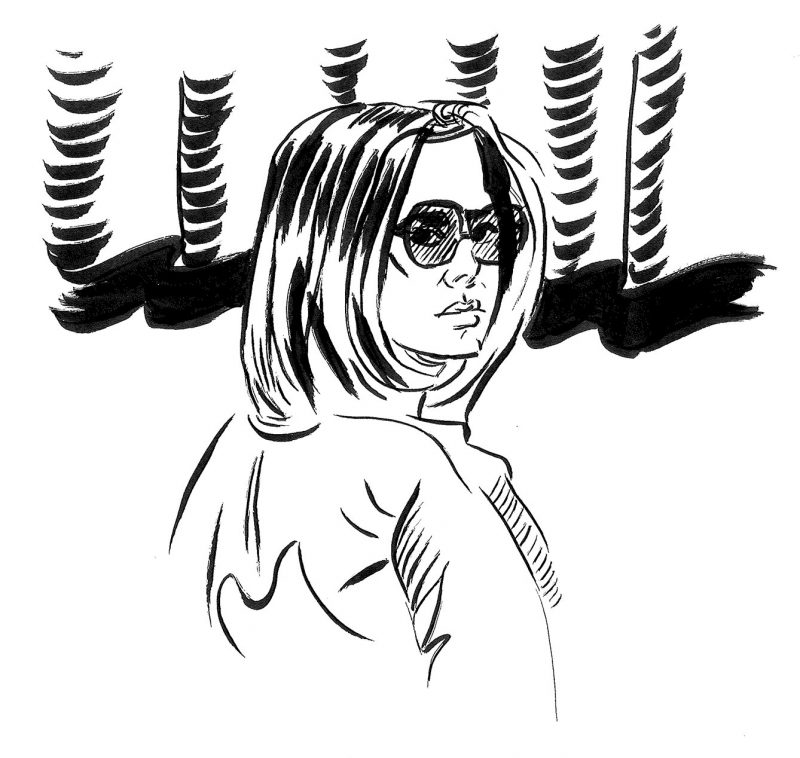In the two weeks since it was released, Mitski’s fifth album “Be the Cowboy” has received enormous acclaim from fans and critics alike. Its serious approach to confronting personal and intimate issues cements it as a momentous album.
The album opens with the song “Geyser,” a title that both describes its sound — a thumping that erupts from tense, bubbling placidity — and encapsulates the themes of the record as a whole. The song introduces a searing synth backdrop that settles into a sonorous accompaniment for Mitski’s strong, sweeping vocals before the energy picks up along with the piano, guitars and drums. This change in energy is in line with the rest of the album’s tone, as it shifts from slow ballads to highly rhythmic pop songs.
“Geyser” also introduces listeners to the desperation and melancholy found in many of Mitski’s lyrics, a familiar feeling to anyone who’s listened to Mitski’s previous two albums, “Bury Me at Makeout Creek” and “Puberty 2.” However, just as the instrumentation changed from the grungy bass of “Bury Me at Makeout Creek” to the fusion of synths and piano in “Be the Cowboy,” Mitski’s lyrical themes indicate an affected maturation that coincides with her growth as a musician.
“Usually my songs have a narrative of some sort,” Mitski told Bob Boilen of National Public Radio while discussing “Geyser.” “But this song is all feeling. … I wrote it about music or just maybe a music career or an ability to make music. I think as a musician you keep sacrificing other things in your life, sacrificing relationships, sacrificing other opportunities, maybe even your physical or mental health in order to do with because it’s not an easy thing to do, and it’s not a job that people need you to do.”
Mitski has made it clear in an interview with Patrick McDermott that “Be the Cowboy” comes from a perspective not necessarily reflective of her own but of an “exaggerated form” of herself. While “Geyser” explores the sacrifices that a musician makes to create her art, the rest of the album tackles the themes of loneliness and incongruity in ways that mirror the musician’s life that Mitski describes.
“There’s the loneliness of being a symbol and a projection, but I think that loneliness [says a lot about] being a woman, or being an other — some kind of identity that has a lot of symbols attached to it,” Mitski told McDermott. “And there’s also just touring. Touring is a very … it isolates. … And no one can really relate to your experiences, so you can’t talk to anybody about it and you go deeper and deeper inside.”
In “Be the Cowboy,” this loneliness manifests most prominently through exploring relationship dynamics that are affected by mutual insecurity, such as in “Washing Machine Heart” where Mitski sings, “Baby, though I’ve closed my eyes / I know who you pretend I am / I know who you pretend I am.” The theme of confronting another’s projected notions of you arises with varying levels of self-assuredness in the perspective of the singer; consider, for instance, “Lonesome Love” where the singer combats her own notions of misplaced courage as she realizes how devastating one “Hello” can be.
Confrontation in general seems to underlie the intended attitude of this album as a whole, especially given the title, “Be the Cowboy.” To be a cowboy is to attempt almost childishly at making oneself stoic and unaffected. In reality, things cannot be avoided that simply. Addressing multiple different angles of adult relationships is something Mitsuki focuses on within this album.
“I can’t keep [singing about being infatuated with someone and having your first love] and still being truthful, because the reality is I’m an adult now, and I’m getting older, and you get older you see a lot of sides of love …” Mitski told Rob Hakimiam of the 405. “I think so much of music is so youth-oriented, when there are so many more stories to tell. A pop song doesn’t just have to be about that young love, because there’s so many more experiences that are worth singing about.”







